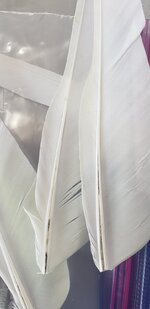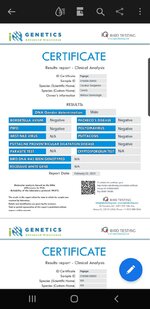mmelgz1980
New member
- Feb 19, 2023
- 7
- 21
- Parrots
- Yes 3
Hello All
I recently welcomed a Corella to my flock. I noticed he has split shafts with what looked like dry blood. These feathers have been sent out to the lab. Please give your opinion. I am worried this might be beak and feather disease. Pictures Attached.

I recently welcomed a Corella to my flock. I noticed he has split shafts with what looked like dry blood. These feathers have been sent out to the lab. Please give your opinion. I am worried this might be beak and feather disease. Pictures Attached.




